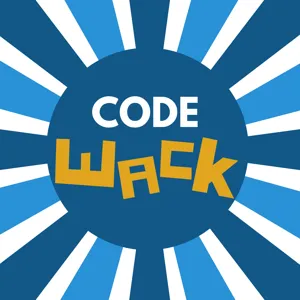Podcast Summary
Affordable wireless plans from Mint Mobile amidst inflation and growth in marijuana industry: Though marijuana industry sees growth, racial disparities persist due to past discrimination policies, hindering people of color's representation and opportunities in licensing
While inflation is on the rise, Mint Mobile offers affordable wireless plans starting at just $15 a month. Meanwhile, the marijuana industry has seen significant growth, with 37 states having legal medical programs and 21 states and D.C. allowing recreational use. However, the acceptance of cannabis as a legitimate business doesn't erase the past. Discriminatory policies enforced against people of color for marijuana possession and distribution continue to impact their lives, leading to long-term consequences such as employment, housing, and educational opportunities. Despite the potential growth of the industry, racial disparities persist, with a lack of representation of people of color in cannabis licensing. The past's legacy of prejudice and discrimination continues to shape the present, and more needs to be done to address these issues.
Navigating the Challenges of Entering the Cannabis Industry: Education, support, and resources are crucial for those entering the cannabis industry, particularly in underserved communities. States are implementing programs to make the process more accessible, but it's important to acknowledge and address historical injustices.
Entering the cannabis industry comes with significant challenges and financial risks, but there are resources available to help ensure social equity. Capital One offers unlimited miles for purchases and hotels booked through their travel platform. Meanwhile, in the world of cannabis, Professor Tahit Chappelle, founder of the Philadelphia Canna Business Association, emphasizes the need for education and support for those looking to enter the industry, particularly in underserved communities. The process involves understanding complex laws and regulations, and often requires hiring legal, financial, and writing expertise. Some states, like New Jersey, are implementing programs to make the process more accessible, offering grants and expert guidance. However, Chappelle warns against the "whitewashing" of the drug, urging the industry to acknowledge and address the medicinal benefits and historical injustices.
Approaching Cultural Events with Sensitivity and Historical Context: Brands should acknowledge past harms and prioritize social equity in the cannabis industry
It's important for brands to approach marketing around cultural events like Black History Month or Pride with sensitivity and historical context, rather than just using them as opportunities to sell products. Devin Alexander's story serves as a reminder of the harsh realities faced by individuals who have been disproportionately affected by marijuana prohibition, even as some progress is made towards legalization and social equity. The cannabis industry must acknowledge and address the harms of the past in order to create a more equitable future. It took Devin three long years to obtain a license for his cannabis business, Rolling Relief, after being arrested for marijuana possession at the age of 17. His experiences derailed his plans for joining the military and forced him to navigate the legal system, demonstrating the lasting impact of marijuana-related arrests. As the industry evolves, it's crucial to prioritize social equity and provide opportunities for those who have been disproportionately affected by marijuana prohibition.
A step towards restorative justice for past cannabis offenders: The Massachusetts social equity program offers opportunities for individuals with past cannabis-related arrests to enter the legal cannabis industry through grants and loans, promoting restorative justice and reparations for those unfairly affected by the war on drugs.
The legalization of cannabis in Massachusetts has provided opportunities for individuals with past cannabis-related arrests through social equity programs. This interviewee shares his personal experience of being arrested at 17 and being denied entry into a cannabis business years later, despite now being a successful entrepreneur. He feels that this social equity program, which includes the creation of a social equity trust fund, is a step towards restorative justice and reparations for those unfairly affected by the war on drugs. However, challenges remain, as cannabis remains a Schedule 1 drug under federal law, making traditional business loans difficult to obtain. The social equity trust fund aims to address this issue by providing small interest loans and grants to social equity entrepreneurs from the state's cannabis revenue.
Disproportionate marijuana arrests for African Americans: Decades of stigma and miseducation perpetuate unequal marijuana laws, affecting African Americans disproportionately. Investors should stay informed about policy changes and consider affordable options like Mint Mobile.
Despite similar usage rates of cameras between African Americans and Caucasians, African Americans are disproportionately more likely to be arrested for marijuana-related offenses. This issue has led some to question the fairness of these laws. Devin Alexander, owner of Rolling Relief, a marijuana delivery service in Massachusetts, emphasizes the discrepancy between the relatively harmless nature of cannabis use compared to legal substances like alcohol. The stigma surrounding cannabis, perpetuated by decades of "just say no" campaigns, needs to be addressed to undo the miseducation and promote a more nuanced understanding of the substance. From a financial perspective, Washington Wise, an original podcast from Charles Schwab, can help investors stay informed about policy changes that may impact their portfolios. Meanwhile, Mint Mobile offers a more affordable wireless plan starting at $15 a month.





